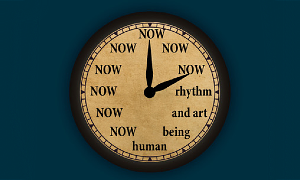Have you tried Amazon's Cloud Drive yet? Well, it works perfectly. Except, it's perfectly overpriced, for a number of critical reasons.
So how much do they want? After 5GB of free storage, Amazon asks you to pay. That is, $20 a year for 20GB, $50 for 50GB, $100 for 100GB, $200 for 200GB, $500 for 500GB, etc., paid on an annual basis, upfront. And so what? Well, it's too much—not by the standards of this industry, but by the standards of average consumers.
It's not that everything has to be free—it doesn't—but there arecheaper alternatives. And the cloud currently represents an enhancement to existing storage solutions that already work well—and for modest prices. Case in point? Just surfing around the main Amazon site, I found a nice little Hitachi 2 terrabyte (TB) USB-connected drive for under $100. It looks great, and will be at my doorstep in a few days. See the immediate problem?
But you don't get it! This is the cloud, this is access everywhere, this is 3.0! Not so fast: I'd argue that there's too much euphoria and hype surrounding the cloud—and that's leading to exactly this sort of overpricing. As a music fan, I can easily carry 100GB in my pocket, and access it more easily than Amazon's Cloud Drive.
That includes any plane, an underground garage, a camping trip, or any number of places where connectivity is difficult. I don't need a connection to access my music, and chances are, I've got it backed up more the twice at home, the office, or both. It IS that simple.
And forget about Apple and Google for a moment. Because the competition from simpler, local storage is fierce! Conventional storage solutions are cheaper than ever, they're more portable than ever, and arguably more reliable than any cloud service. And, please, don't tell me that hard drives crash—of course they do, but in order to lose my collection I'd also have to leave my iPod in a cab and suffer two simultaneous crashes—or thefts, or a leveling fire. Sure, these things do happen, and it would be a tough week. But it almost seems like the cloud will crash before I experience a catastrophe on that level.
But there's another problem. Because Apple is rumored to be considering a free cloud launch, just another way to keep people roped into its iWhatever ecosystem. I haven't heard the same about Google, but you can see where this is going. Because as long as cheap and reliable alternatives exist—in the air or on the ground—it's going to be tough to charge premium amounts for the cloud.
So how much do they want? After 5GB of free storage, Amazon asks you to pay. That is, $20 a year for 20GB, $50 for 50GB, $100 for 100GB, $200 for 200GB, $500 for 500GB, etc., paid on an annual basis, upfront. And so what? Well, it's too much—not by the standards of this industry, but by the standards of average consumers.
It's not that everything has to be free—it doesn't—but there arecheaper alternatives. And the cloud currently represents an enhancement to existing storage solutions that already work well—and for modest prices. Case in point? Just surfing around the main Amazon site, I found a nice little Hitachi 2 terrabyte (TB) USB-connected drive for under $100. It looks great, and will be at my doorstep in a few days. See the immediate problem?
But you don't get it! This is the cloud, this is access everywhere, this is 3.0! Not so fast: I'd argue that there's too much euphoria and hype surrounding the cloud—and that's leading to exactly this sort of overpricing. As a music fan, I can easily carry 100GB in my pocket, and access it more easily than Amazon's Cloud Drive.
That includes any plane, an underground garage, a camping trip, or any number of places where connectivity is difficult. I don't need a connection to access my music, and chances are, I've got it backed up more the twice at home, the office, or both. It IS that simple.
And forget about Apple and Google for a moment. Because the competition from simpler, local storage is fierce! Conventional storage solutions are cheaper than ever, they're more portable than ever, and arguably more reliable than any cloud service. And, please, don't tell me that hard drives crash—of course they do, but in order to lose my collection I'd also have to leave my iPod in a cab and suffer two simultaneous crashes—or thefts, or a leveling fire. Sure, these things do happen, and it would be a tough week. But it almost seems like the cloud will crash before I experience a catastrophe on that level.
But there's another problem. Because Apple is rumored to be considering a free cloud launch, just another way to keep people roped into its iWhatever ecosystem. I haven't heard the same about Google, but you can see where this is going. Because as long as cheap and reliable alternatives exist—in the air or on the ground—it's going to be tough to charge premium amounts for the cloud.


























